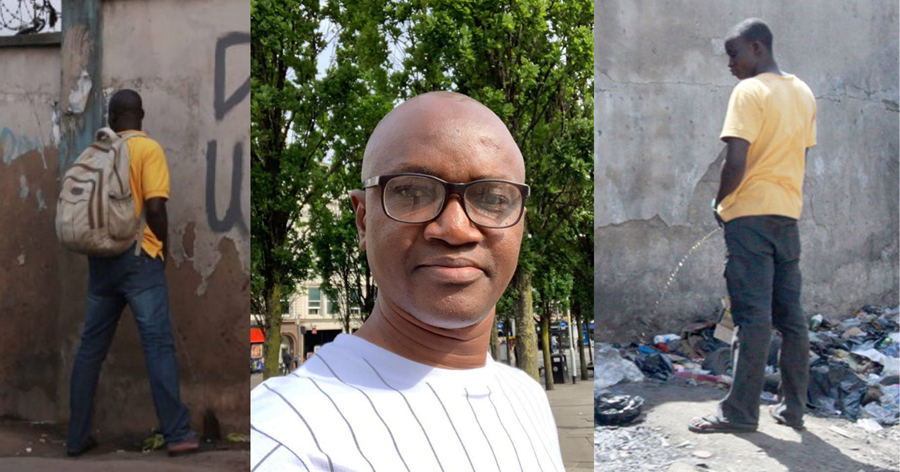BBC World Service journalist Umaru Fofana has expressed his dismay over the lack of hygiene among some men in Sierra Leone, particularly in the capital city of Freetown.
Fofana, known for his insightful reporting, took to social media to address the issue, highlighting the habit of some individuals urinating in public gutters despite the availability of nearby public toilets.
In a poignant message shared in Krio language, Fofana lamented, “Walahi a taya for see big man dem day piss na gutter. San san tem back oh! En some noto toilet day far oh, na jus dorti habit. Shameless!” Translated, he expressed his frustration, stating, “I am tired of seeing grown men urinating inside the gutters in the afternoon, not because the public toilets are far from them, but simply because they prefer a dirty habit. It is shameful.”
Fofana’s comments shed light on a widespread issue that not only affects public cleanliness but also reflects upon societal attitudes towards hygiene and public behavior. Despite the availability of basic sanitation facilities, some individuals continue to engage in unsanitary practices, disregarding the impact on public health and the environment.
The journalist’s words have sparked a conversation online, with many echoing his sentiments and calling for greater awareness and enforcement of hygiene regulations. Some have questioned the underlying reasons behind such behavior, citing factors such as lack of awareness, inadequate infrastructure, and cultural norms.
Efforts to address this issue have been ongoing, with initiatives aimed at promoting hygiene education and improving sanitation facilities in urban areas. However, challenges persist, and the issue remains a pressing concern for public health authorities and policymakers.
Fofana’s advocacy for cleanliness serves as a reminder of the importance of personal responsibility and community action in maintaining a clean and healthy environment. His words resonate not only in Sierra Leone but also serve as a call to action for societies worldwide to prioritize hygiene and sanitation practices for the well-being of all.












So true, I also condemned public…..
The urinating of an individuals in the gutters during the day is simply because the availability of public toilets are not really enough, the government via the City Council who are supposed to take the responsibility of their Citizens to eradicate this dirty means of Urinating throughout the City, I totally condemned this act and I am calling on the government to take control of this issue immediately to avoid sicknesses and other dangerous diseases which may affect individuals who are in charge of cleaning and gutters.